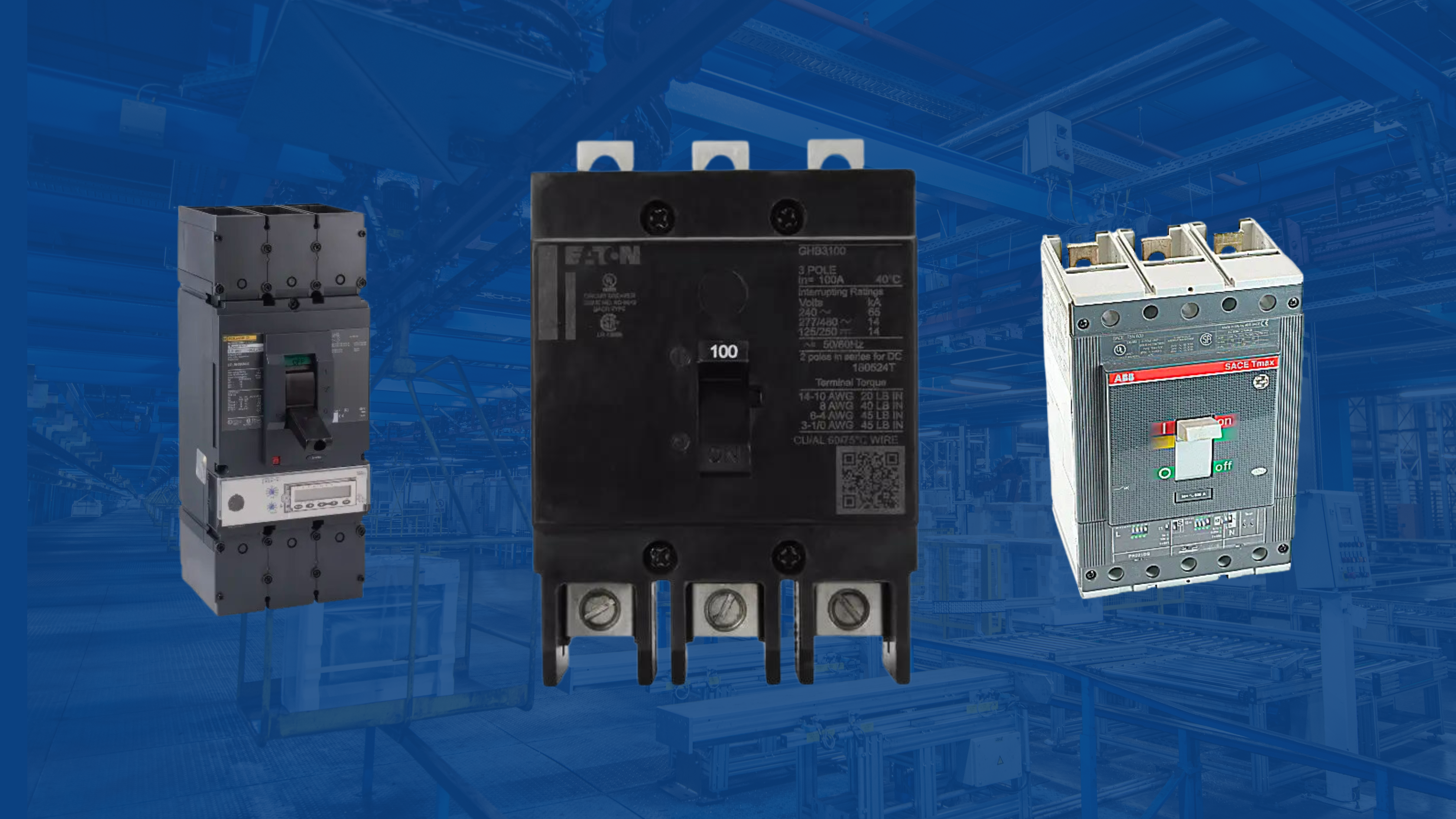Molded Case Circuit Breakers (MCBBs) - what is a molded case circuit breaker?
by Quotebeam Team
Feb 26, 2024

In the world of electrical engineering and safety, molded case circuit breakers (MCBs) play a crucial role. These devices are fundamental components of electrical systems, serving to protect circuits from overloads and short circuits. In this blog, we’ll dive into the definition of MCBs, their functionality, and the distinctions between MCBs and miniature circuit breakers (MCBs).
What is a Molded Case Circuit Breaker (MCB)?
Let's break down the components and operation of molded case circuit breakers (MCBs) into simpler points:
- Protective Device:
- MCBs safeguard electrical circuits from overloads and short circuits, preventing damage and hazards.
- They swiftly interrupt excessive current flow, averting overheating and potential fires.
- Reusable Solution:
- Unlike fuses, MCBs are reusable; once tripped, they can be easily reset without replacement.
- This saves time and ensures uninterrupted electrical system operation.
- Construction and Components:
- Housed in a sturdy case, MCBs contain essential components like the switching mechanism and trip unit.
- The switching mechanism controls circuit contacts, while the trip unit detects abnormalities and triggers interruption.
- Abnormal Condition Detection:
- The trip unit identifies faults such as overloads or short circuits.
- It responds promptly, preventing damage by tripping the circuit.
- Ensuring Safety:
- MCBs swiftly halt current flow by opening circuit contacts, preventing further damage or hazards.
- This rapid response maintains safety and reliability in electrical systems.
MCBs offer reliable, reusable protection for electrical circuits, ensuring safety and uninterrupted operation across various applications.
MCCBs vs MCBs - What is the difference between MCB and MCCB?
One common question that arises is the difference between molded case circuit breakers (MCCBs) and miniature circuit breakers (MCBs). While both serve similar purposes, there are distinct variances in their applications and capabilities. MCCBs are typically used for higher current ratings and are capable of handling larger loads, making them suitable for industrial and commercial applications. On the other hand, MCBs are designed for lower current ratings and are commonly found in residential settings.
If you’d like to learn more about MCCBs, take a look at our recent blog “What are MCBs and how do they work?” for more insights.
How do MCCBs work and what is their function?
MCCBs (Molded Case Circuit Breakers) are essential for keeping electrical systems safe and reliable in various settings:
- Industrial Manufacturing Plant:
- In a busy manufacturing plant with heavy machinery, there's a constant risk of electrical overloads or short circuits.
- MCCBs installed in the main distribution panel act as the first line of defense. They detect abnormal electrical conditions, like sudden surges in current caused by equipment failures.
- With adjustable trip settings, MCCBs can adapt to different industrial needs. For example, during startup when currents spike, settings can be adjusted to handle short bursts without shutting down.
- In case of severe faults, like machinery malfunctions causing short circuits, MCCBs swiftly cut off power, isolating the problem and preventing damage or accidents.
- Commercial Office Building:
- Modern office buildings have various electrical loads, including lighting and HVAC systems.
- MCCBs in the electrical panel protect circuits from overloads, especially during peak usage times.
- The trip unit of an MCCB constantly monitors current flow. If it detects an overload, such as multiple AC units starting at once, it opens the circuit to prevent overheating and fires.
- Adjustable trip settings allow customization for specific needs. For sensitive areas like server rooms, settings can be fine-tuned to provide extra protection against sudden surges.
MCCBs play a crucial role in ensuring safety and preventing disruptions in both industrial and commercial environments.
To recap, molded case circuit breakers (MCBs) are essential components of electrical systems, providing vital protection against overloads and short circuits. Understanding their definition, functionality, and differences from miniature circuit breakers (MCBs) is crucial for ensuring the safety and reliability of electrical installations. Whether in industrial, commercial, or residential settings, MCCBs play a pivotal role in safeguarding against electrical hazards and maintaining the integrity of electrical infrastructure.
